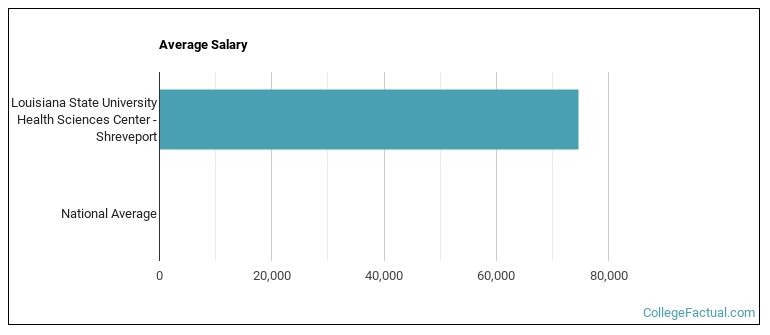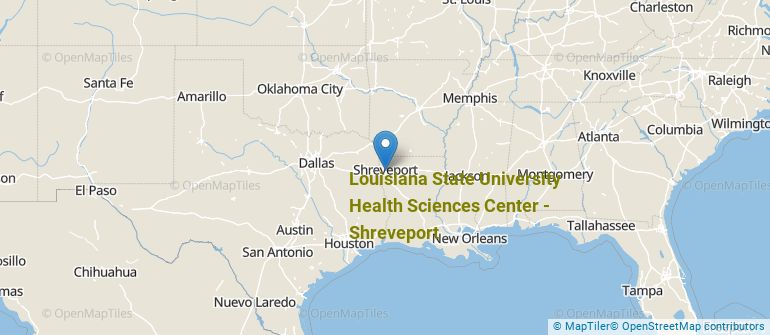 by our College Data Analytics Team
by our College Data Analytics TeamExplore the best ranked schools for the programs you are most interested in.
LSU Health - Shreveport was not ranked in College Factual's Best Overall Colleges report this year. This may be because not enough data was available.
See all of the rankings for Louisiana State University Health Sciences Center - Shreveport.
At LSU Health - Shreveport, the student to faculty ratio is an excellent 3 to 1. That's much better than the national average of 15 to 1. This indicates that many classes will probably be small, and students will have ample opportunites to work closely with their professors and classmates.
Another measure that is often used to estimate how much access students will have to their professors is how many faculty members are full-time. The idea here is that part-time faculty tend to spend less time on campus, so they may not be as available to students as full-timers.
The full-time faculty percentage at Louisiana State University Health Sciences Center - Shreveport is 95%. This is higher than the national average of 47%.
During the 2017-2018 academic year, there were 29 undergraduates at LSU Health - Shreveport with 22 being full-time and 7 being part-time.


Contact details for LSU Health - Shreveport are given below.
| Contact Details | |
|---|---|
| Address: | 1501 Kings Hwy, Shreveport, LA 71103 |
| Phone: | 318-675-8769 |
| Website: | https://www.lsuhs.edu/ |
| Most Popular Majors | Bachelor’s Degrees | Average Salary of Graduates |
|---|---|---|
| Medicine | 137 | NA |
| Rehabilitation & Therapeutic Professions | 57 | NA |
| Allied Health Professions | 39 | NA |
| Clinical/Medical Laboratory Science | 14 | $64,525 |
| Communication Sciences | 9 | NA |
| Microbiological Sciences & Immunology | 4 | NA |
| Physiology & Pathology Sciences | 3 | NA |
| General Biology | 2 | NA |
| Pharmacology & Toxicology | 2 | NA |
| Biochemistry, Biophysics & Molecular Biology | 1 | NA |
Online learning is becoming popular at even the oldest colleges and universities in the United States. Not only are online classes great for returning adults with busy schedules, they are also frequented by a growing number of traditional students.
In 2022-2023, 191 students took at least one online class at Louisiana State University Health Sciences Center - Shreveport. This is an increase from the 170 students who took online classes the previous year.
| Year | Took at Least One Online Class | Took All Classes Online |
|---|---|---|
| 2022-2023 | 191 | 48 |
| 2021-2022 | 170 | 38 |
| 2020-2021 | 129 | 22 |
| 2018-2019 | 0 | 0 |
Learn more about online learning at Louisiana State University Health Sciences Center - Shreveport.
Footnotes
*The racial-ethnic minorities count is calculated by taking the total number of students and subtracting white students, international students, and students whose race/ethnicity was unknown. This number is then divided by the total number of students at the school to obtain the racial-ethnic minorities percentage.
References
More about our data sources and methodologies.